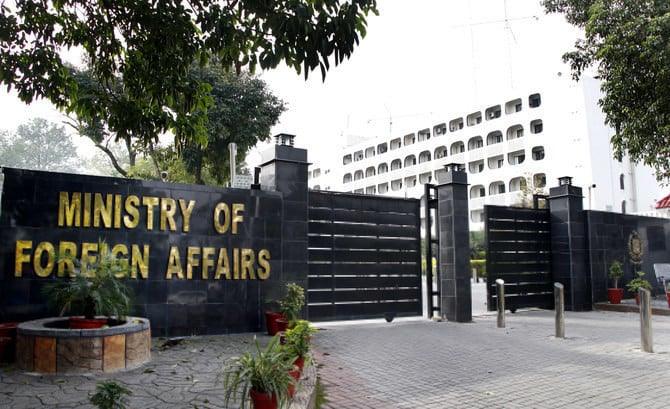Pakistan has rejected concerns raised by a senior US official regarding its missile capabilities, describing the allegations as baseless and counterproductive to bilateral relations.
The Ministry of Foreign Affairs highlighted Pakistan’s commitment to regional peace and stability, while reaffirming the defensive nature of its strategic programme.
The Ministry of Foreign Affairs expressed disappointment over the US official’s statement at a think tank, calling the alleged threat perception lacking rationality and historical context.
In a formal statement, the ministry noted that Pakistan and the United States have shared a positive relationship since 1954. It warned that unfounded accusations against Pakistan, a major non-NATO ally, risk damaging this far-reaching partnership, particularly in the absence of evidence.
The ministry reiterated that Pakistan’s missile program is designed to safeguard its sovereignty and maintain peace in South Asia. He underlined the need for a credible minimum deterrence to deal with evolving threats, stating that Pakistan’s capabilities should not be misconstrued as hostile towards any other nation, including the United States.
The spokesperson also criticized the apparent inconsistency in US concerns, stating that the focus on Pakistan’s missile program overlooks more significant capabilities in the region.
Highlighting Pakistan’s sacrifices in sustaining the consequences of US policies in the region, the statement emphasized that Pakistan has always sought to engage constructively with the United States on security and stability. He highlighted the importance of building on the legacy of cooperation between the two countries.
The Ministry of Foreign Affairs maintained that Pakistan’s strategic program is an integral part of its national defense and enjoys consensus across the political and social spectrum. He rejected any attempt to interfere with or undermine this capability under any pretext.
The statement concluded by urging a balanced approach to security in the region, reaffirming Pakistan’s commitment to fostering a constructive dialogue with the United States.
Earlier, a senior White House official said Thursday that nuclear-armed Pakistan is developing long-range ballistic missile capabilities that could eventually allow it to strike targets outside South Asia, including the United States.
In his stunning revelation about the United States’ once-close partner, Deputy National Security Adviser Jon Finer said Islamabad’s conduct raised “real questions” about the goals of its ballistic missile program.
The United States on Wednesday imposed sanctions on four Pakistani entities for their alleged involvement in advancing the country’s long-range missile program.
“In light of the continued proliferation threat from Pakistan’s long-range missile development, the United States is designating four entities for sanctions pursuant to Executive Order (EO) 13382, which targets proliferators of weapons of mass destruction and their means of launch,” it reads. a statement issued by the State Department.
Pakistan condemned the US decision to impose sanctions on its National Development Complex (NDC) and three commercial entities, calling the move “unfortunate and biased”.




